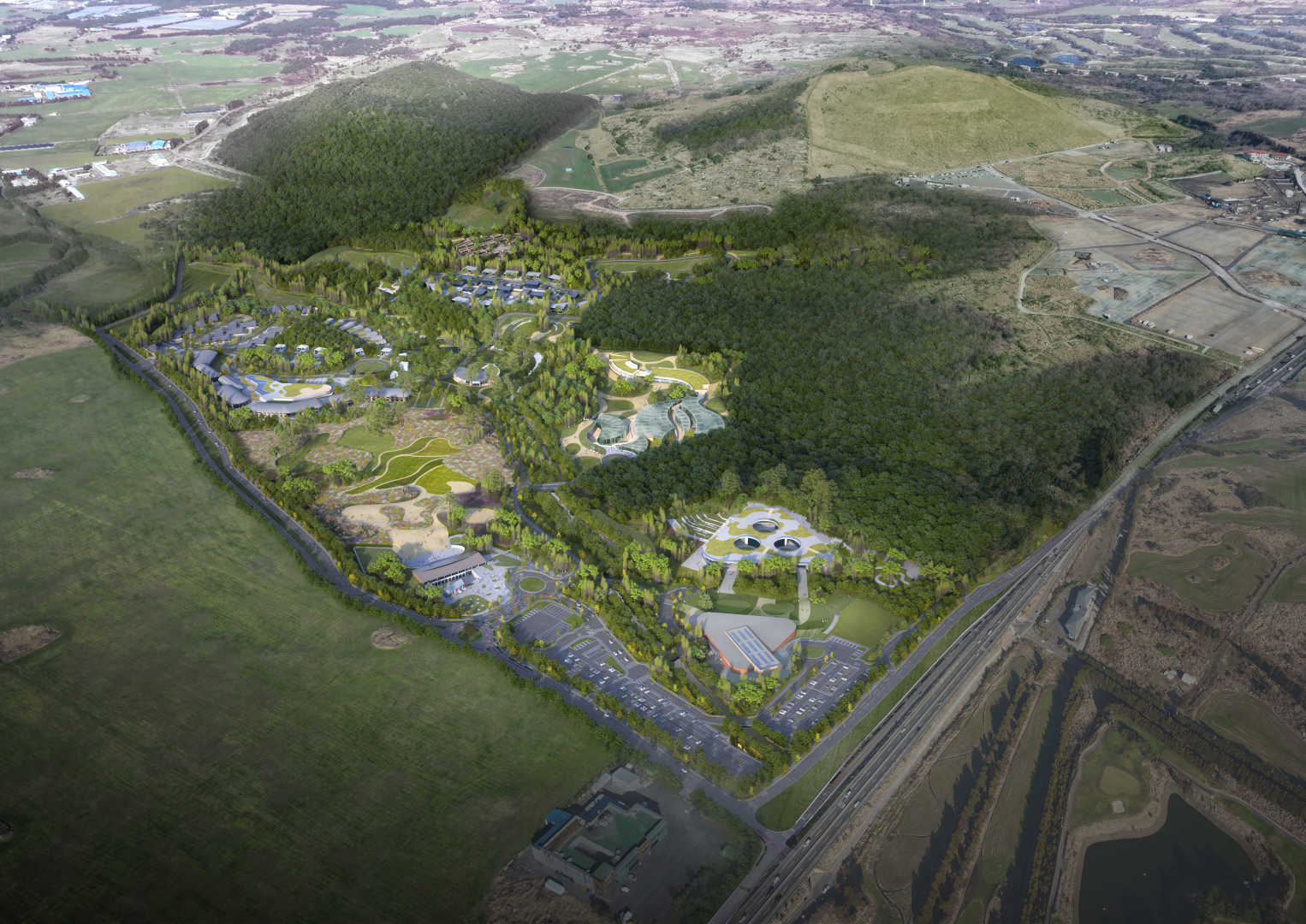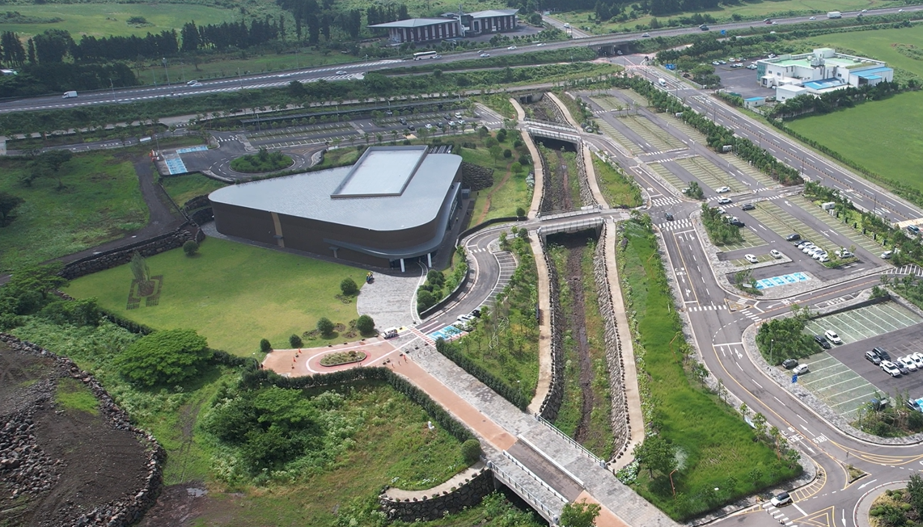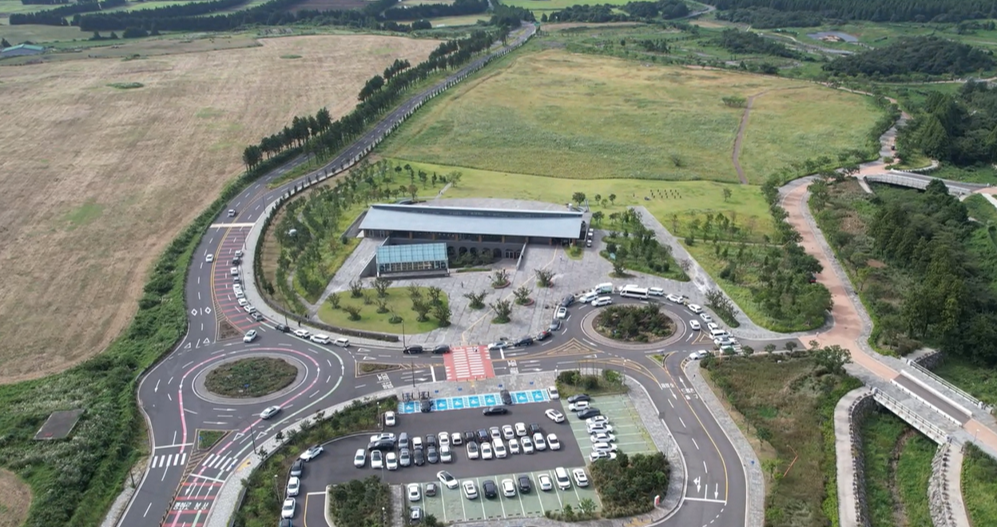Jeju Daedong Sets Sights on Becoming Jeju’s No.1 Tourist Destination, Targeting 800,000 Visitors This Year
Jeju Daedong Sets Sights on Becoming Jeju’s No.1 Tourist Destination, Targeting 800,000 Visitors This Year
- Jeju Daedong is pushing forward with plans to establish a tourism complex that combines future-oriented agriculture in Aewol, Jeju... The development will span approximately 693,218 m² (210,000 pyeong) and be divided into three distinct zones
- Last year, the Jejudang & Arte Kids Park, which opened with an agricultural and media art concept, attracted a total of 540,000 visitors
- The company is strengthening its content offerings by renewing its food and beverage menus, hosting pop-up stores, launching agriculture-themed merchandise, and expanding large-scale walking trails
Jeju Daedong[i], the future agriculture tourism development subsidiary of Daedong Group (CEO Won Yu-hyun), announced on March 10 that it aims to become Jeju’s top tourist attraction this year, centered around Jejudang Bakery Café (hereafter “Jejudang Café”)[ii] and Arte Kids Park[iii], which drew about 540,000 visitors last year, with a goal of attracting 800,000 visitors in 2025.

Jeju Daedong has been developing the Greenscape Tourism Complex near Saebyeol Oreum in Aewol-eup, Jeju-si since 2013, covering approximately 693,218 m² (210,000 pyeong) and consisting of three zones: the Public Zone, Private Zone, and Smart Zone. The Public Zone offers a variety of attractions for visitors, including commercial facilities, walking trails, and gardens. The Private Zone is comprised of accommodations and community facilities such as hotels, condos, spas, and an equestrian center. The Smart Zone features a future agriculture R&D center, smart farms, and experiential facilities.
Jeju Daedong began developing the Public Zone as the first phase of the tourism complex, opening Jejudang Café and Arte Kids Park in May of last year. Jejudang Café has become popular for its unique bakery menu items shaped like local agricultural products such as tangerines, sweet potatoes, and carrots, as well as food and beverage offerings made with crops grown on its smart farm. In addition, a variety of agricultural-themed sculptures and interior furnishings, along with the large-scale botanical garden “Great Field,” which spans approximately 85,000 m² (about 26,000 pyeong), have received an enthusiastic response from visitors. Since its opening, Great Field has quickly become a new attraction, drawing a total of 330,000 visitors.
Arte Kids Park is Korea’s first media-based indoor kids’ café, created in collaboration with d’strict, the country’s leading media art content group. It offers a variety of experiential spaces, such as “Live Sketchbook,” where children’s drawings are transformed into wall media art; “Sand Beach,” where kids can enjoy playing with beach sand indoors; and “Art Play,” a space where children can run and play in areas filled with vibrant colors. Thanks to these unique experiences, the park has attracted 210,000 visitors to date.

This year, Jeju Daedong plans to further enhance the appeal of its Greenscape Tourism Complex by refreshing the food and beverage menu at Jejudang, redesigning lighting to attract nighttime visitors, developing agriculture-themed merchandise, hosting pop-up stores through collaborations with other brands, attracting promising local shops from the Jeju area, and operating special sales venues for agricultural products from nearby villages. Through these efforts, the company aims to firmly establish its Greenscape Tourism Complex as Jeju’s number one tourist destination. In addition, Jeju Daedong intends to develop green spaces and retention basins within the site to create walking trails and other rest areas for both tourists and local residents, setting a model example of tourism development that contributes to the local community. Furthermore, the company plans to build a multi-purpose commercial space themed around Jeju’s iconic rain, oreum (volcanic cones), water, and sunsets, providing visitors with a wider range of services while also contributing to the revitalization of the local economy through job creation.
Additionally, starting with the launch of a tea made from Igodeulppaegi (youngia denticulata houtt kitamura), for which Daedong holds intellectual property rights, the company plans to introduce green bio[iv] products rich in functional ingredients that promote health, such as improving liver function and preventing aging. Through these offerings, Jeju Daedong aims to establish itself as a forward base for the group’s food tech business. Furthermore, the company is hoping to expand its “farm-to-table” model, in which food and beverage menu items are made and sold using crops from its smart farm. Going forward, Jeju Daedong plans to make these crops available in restaurants, hotels, and other tourist facilities, thereby achieving a true convergence of agriculture and tourism.

Jeju Daedong is also moving forward in earnest with the development of the second phase, the “Private Zone.” This phase will include a multi-purpose commercial facility, a members-only spa, a 195-room hotel and a 70-room condominium, both of which will be operated under a management contract with Josun Hotels & Resorts. Preparations such as design work and obtaining construction permits will be carried out this year, with construction scheduled to begin in 2026. In addition, Jeju Daedong plans to develop a large-scale smart farm and related facilities for the research and cultivation of the company’s proprietary functional specialty crops.
________________________________________
[i] About Jeju Daedong Since its establishment in 2013, Jeju Daedong has been presenting a model that integrates sustainable agriculture and tourism through the development of smart farms and agri-tech tourism complexes. The company is developing a “future agriculture experiential tourism complex” on a site of approximately 693,218 m² (210,000 pyeong) in Aewol, Jeju Special Self-Governing Province, and, as Daedong Group’s forward base for future agriculture, aims to pass on the sustainable value of agriculture to future generations.
[ii] About Jejudang Bakery Café Jejudang Bakery Café is a large-scale café with a site area of 19,354 m² (5,854 pyeong) and a total floor area of 2,976 m² (900 pyeong). It offers parking for over 470 vehicles and has a seating capacity of 310 people. The café serves a total of 29 types of beverages, including coffee, tea, and juice, as well as 49 varieties of bakery items shaped like various agricultural products, and 15 restaurant menu items such as pasta and risotto. A notable feature is that some of the beverages and restaurant menu items use agricultural products grown directly on the smart farm adjacent to the café.
[iii] About Arte Kids Park Arte Kids Park is Korea’s first media-based indoor kids’ park, jointly invested and developed with d’strict, which operates numerous “Arte Museum” media exhibition halls nationwide and overseas. The facility has a site area of 13,495 m² (4,083 pyeong) and a total floor area of 4,829 m² (1,460 pyeong), and is characterized by a variety of attractions utilizing media art on the floors and walls. It is divided into four zones: analog play facilities, media experience play areas, media art exhibition spaces, and convenience facilities. The maximum capacity at any one time is 600 people.
[iv] What is the Green Bio Industry? The Green Bio industry is a new industry sector that creates added value throughout agriculture and related upstream and downstream industries by applying biotechnology (BT) and other technologies to agricultural biological resources. Key areas include seeds, veterinary drugs, microorganisms, insects, natural products, and food ingredients.
